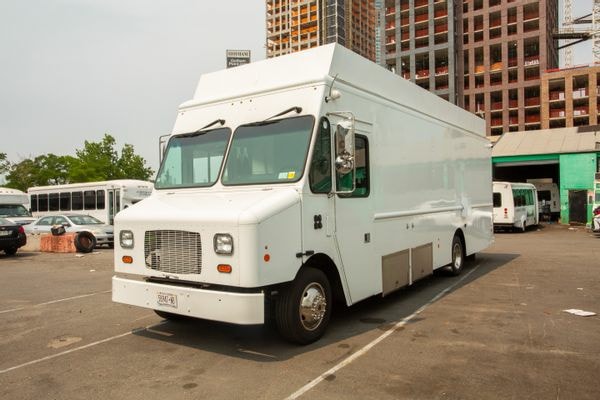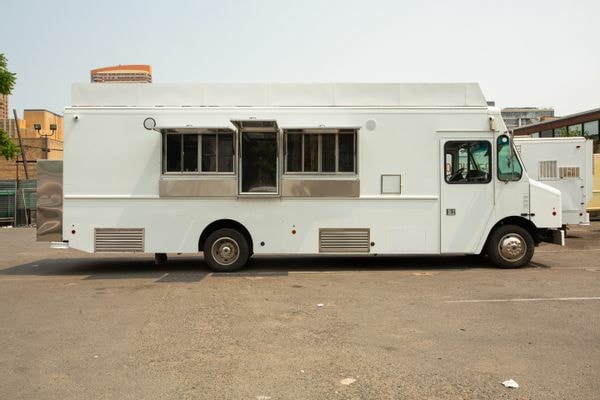The Ultimate Guide to Custom Coffee Trailers
The Ultimate Guide to Custom Coffee Trailers: Building Your Dream Mobile Coffee Shop

The Ultimate Guide to Custom Coffee Trailers Image Source: FreeImages
## Introduction
Are you dreaming of starting your own coffee business but don’t want to be confined to a brick-and-mortar shop? Look no further than custom coffee trailers! These mobile coffee shops allow you to bring your love for coffee to various events and locations, serving customers wherever they may be. In this ultimate guide, we will explore the world of custom coffee trailers, their benefits, and how you can create your dream mobile coffee shop.
Why Choose a Custom Coffee Trailer?
When it comes to starting a coffee business, you may be tempted to go for a pre-made trailer. However, opting for a custom coffee trailer offers numerous advantages. With a custom coffee trailer, you have the opportunity to design every aspect of your mobile coffee shop, ensuring it aligns perfectly with your vision and brand. From the layout and interior design to the equipment and branding, you have full control over the customization process.
Exploring Coffee Trailer Options
There are various coffee trailer models available, each catering to different needs and preferences. Let’s take a closer look at some popular options:
1. Bobble Tea Coffee Bar Trailer
The Bobble Tea Coffee Bar Trailer is a true mobile coffee shop that offers everything you need to serve a wide range of coffee concepts, from Italian espresso to boba coffee. This model features a retro appearance with warm color palettes, adding a touch of vintage charm to your coffee business. With concession windows on all three sides, seamless customer interaction and efficient order processing are guaranteed. The stainless steel kitchen is designed for commercial use, and the optional coffee equipment package includes an Espresso machine, under-counter fridge, coffee bean grinder, and more.
2. 8ft Boba & Coffee Bar Trailer
The 8ft Boba & Coffee Bar Trailer is a compact and versatile option for those looking to start a mobile coffee business. With strategically arranged equipment, this trailer optimizes the coffee-making process, ensuring efficiency and convenience. The layout can be customized to suit your specific needs, and the advanced add-on package tailored for boba and coffee businesses includes espresso machines, automatic cup sealing machines, and more.
3. 10ft Custom Coffee Concession Trailer
If you’re looking for a mobile pop-up cafe that can fit into small footprint locations and events, the 10ft Custom Coffee Concession Trailer is the perfect choice. This premium solution offers all the essential features of a coffee house or truck but with enhanced mobility and versatility. The upgraded features include NSF-certified equipment preferred by public health inspectors, customized layouts, and ample counter and storage space.
4. Vintage Horse Trailer Coffee Bar for Weddings
For a truly unique and customizable wedding experience, consider the Vintage Horse Trailer Coffee Bar. This 10ft trailer with a classic horse trailer body in milky white adds a touch of elegance to any wedding. The interior is designed for top-notch bartending services, with easy-to-clean walls and ceilings made from aluminum composite panels, stainless steel workbenches, and commercial-grade faucets. The coffee station features a spacious workbench with sinks and ample space for refrigeration equipment.
Building Your Dream Coffee Trailer
Now that you have explored the different coffee trailer options, it’s time to build your dream mobile coffee shop. Here are the steps to bring your vision to life:
1. Define Your Vision and Goals
Before diving into the customization process, take the time to define your vision and goals for your coffee business. Consider your target audience, the atmosphere you want to create, and the types of coffee and beverages you plan to serve. This will guide your decisions throughout the customization process.
2. Work with a Professional Coffee Trailer Manufacturer
Collaborating with a professional coffee trailer manufacturer is crucial to ensure that your coffee trailer meets all health codes and regulations. Look for a manufacturer who has experience in building custom coffee trailers and can provide guidance throughout the construction process. They should be willing to collaborate closely with you to bring your unique coffee concept to life.
3. Customize the Layout and Design
One of the biggest advantages of a custom coffee trailer is the ability to design the layout and interior according to your preferences. Work closely with the manufacturer to create a functional and aesthetically pleasing space. Consider factors such as the placement of equipment, storage solutions, customer interaction areas, and branding elements.
4. Choose High-Quality Equipment
Investing in high-quality coffee-making equipment is essential for delivering top-notch beverages to your customers. Consider the specific needs of your coffee business and choose equipment that suits your menu and production volume. This may include espresso machines, coffee grinders, refrigeration units, ice makers, and more. Ensure that all equipment meets industry standards and is easy to maintain.
5. Incorporate Branding and Signage
Branding plays a crucial role in attracting customers and creating a memorable experience. Incorporate your brand elements, such as logos, colors, and fonts, into the design of your coffee trailer. Consider adding eye-catching signage and graphics to attract attention and make your mobile coffee shop stand out.
6. Ensure Safety and Compliance
When operating a mobile coffee shop, it’s vital to prioritize safety and compliance. Ensure that your coffee trailer is equipped with the necessary safety features, such as fire suppression systems, proper ventilation, and secure storage for gas or propane tanks. Adhere to local health codes and regulations to ensure the health and safety of both your customers and employees.
7. Test and Refine
Once your coffee trailer is built, it’s time to test and refine your operations. Set up a mock service to identify any areas that need improvement, whether it’s workflow efficiency, equipment functionality, or customer service. Collect feedback from customers and make necessary adjustments to ensure a seamless and enjoyable experience for everyone.
Conclusion
Custom coffee trailers offer a unique and flexible way to bring your coffee business to the masses. By customizing the layout, design, and equipment, you can create a mobile coffee shop that perfectly aligns with your vision and brand. Collaborate with a professional coffee trailer manufacturer, choose high-quality equipment, and prioritize safety and compliance. With your dream coffee trailer in tow, you’ll be ready to serve delicious coffee to customers wherever they may be. So start planning, get creative, and embark on your journey to becoming a mobile coffee shop owner today!
Tone of Voice: Informative, Engaging, Enthusiastic









